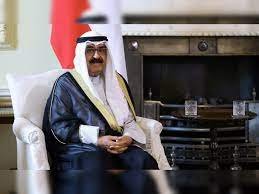In a televised address on Friday, Kuwait’s Emir, Sheikh Meshal al-Ahmad al-Sabah, announced the dissolution of parliament and the temporary suspension of certain constitutional articles for up to four years. During this period, a comprehensive review of the democratic process will take place, with the Emir and the country’s cabinet assuming the powers of the National Assembly, as reported by state TV.
The Emir emphasized the urgent need for decisive action to navigate the challenges Kuwait has faced recently and to safeguard the nation’s highest interests. Kuwait’s legislative body holds significant influence compared to its counterparts in other Gulf monarchies, often leading to political deadlock, cabinet reshuffles, and parliament dissolutions over the years.
Domestic political disputes, particularly regarding welfare system reforms, have plagued Kuwait for years, hindering the nation from taking on debt despite its considerable oil wealth. This financial strain has strained Kuwait’s ability to meet public sector obligations, despite its immense oil reserves, making it imperative to address these challenges swiftly.
With a population of around 4.2 million and oil reserves ranking sixth globally, Kuwait’s stability holds significance not only regionally but also internationally. The nation has maintained a strong alliance with the United States since the 1991 Gulf War, hosting a substantial American military presence, including the forward headquarters of the US Army in the Middle East.
Kuwait stands out among Gulf Arab countries for its democratically elected parliament, which provides some checks on the ruling family’s authority. However, the ruling family retains the power to appoint the government and dissolve the assembly at its discretion, highlighting the delicate balance between democracy and monarchy in the country.



